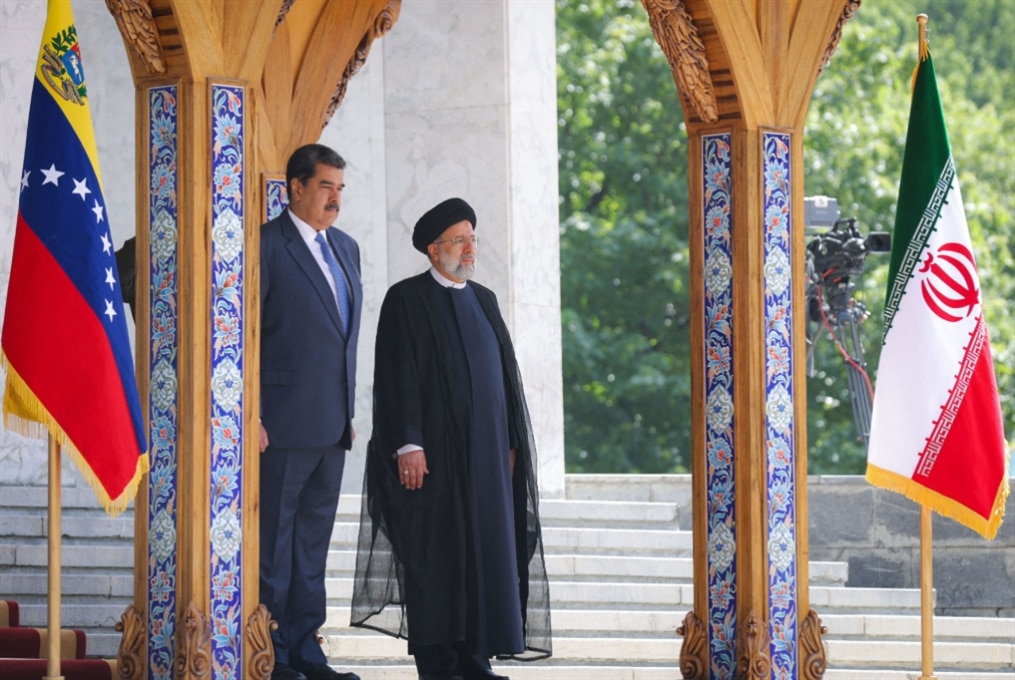
Featured image: Venezuelan President Nicolás Maduro (left) and Iranian President Seyed Ebrahim Raisi during a military salute at the presidential palace in Tehran, June 2022. Photo: Alazmenah.com.

Orinoco Tribune – News and opinion pieces about Venezuela and beyond
From Venezuela and made by Venezuelan Chavistas

Featured image: Venezuelan President Nicolás Maduro (left) and Iranian President Seyed Ebrahim Raisi during a military salute at the presidential palace in Tehran, June 2022. Photo: Alazmenah.com.
Venezuela has agreed to provide Iran with one million hectares of agricultural land for food growing projects, Iranian officials confirm.
On July 26, Iran’s deputy interior minister for economic affairs, Mohsen Kushki Tabar, praised the agricultural agreement signed between the two countries, which is part of the 20-year cooperation plan signed during the visit of Venezuelan President Nicolás Maduro to Tehran, Iran’s capital city, in June.
The Iranian official has stated that this agreement, which was inked amid the world crisis of food reserves, “shows that the strong and great Iran has reached a level of knowledge exchange comparable to other countries.”
In addition, he said that this highlights the high technical knowledge of Iranian knowledge-based companies at the international level.
RELATED CONTENT: Iran Helps Venezuela’s PDVSA to Increase Production, Says Reuters
Iran, like many Middle East countries, has been affected by desertification and climate change for several decades already, and this agreement will provide Venezuela’s strategic ally with fertile ground to address the needs of its people.
Regarding the agreement, the director of the association of transterritorial crops of Iran, Ali Rezvanizade, stated that Venezuela can provide a better opportunity than Brazil and Russia for Iran’s agricultural projects abroad, including the cultivation of soybean and corn.
According to Rezvanizade, Iran requires seven million hectares of agricultural land abroad to ensure its food security.
Some other countries agreed to provide agricultural land for Iranian projects on a much smaller scale. Russia recently offered 100,000 hectares for Iran’s projects, the official IRNA news agency reported.
According to some experts, the biggest advantage of overseas cultivation for Iran is the preservation of its valuable water resources. Iran’s agriculture uses about 85% of all available water resources. It would also potentially contribute to the country’s food security, a major concern for the leader of Iran’s Islamic Revolution, Ayatollah Seyed Ali Khamenei, who has been an ardent promoter of agricultural self-sufficiency for the past three decades.
Venezuelan priority: use Iranian technology in the field of agriculture
To further develop bilateral relations, the Venezuelan president visited Tehran in June and signed a 20-year cooperation agreement with his Iranian counterpart, Seyed Ebrahim Raisi, particularly in the areas of science, technology, agriculture, defense, oil and gas, petrochemicals, tourism, and culture.
During a meeting with his Iranian counterpart, Maduro noted that Venezuela is interested in using Iran’s historical experience, as well as its capabilities in various fields, to overcome the difficult period of sanctions, and to expand cooperation and relations between the two countries.
“One of our priorities to expand cooperation with Iran is to use Iranian technology to develop agricultural production in Venezuela,” the Venezuelan president emphasized.
In addition, Maduro pointed out, at a press conference with his Iranian counterpart, that 70% of Iran’s territory is desert, so the production of its food occurs only on 30% of its land, while in Venezuela there are 30 million arable hectares that allow not only the increase domestic food production, but also “to produce food for export to Iran and the entire Asian region.”
The Venezuelan president stressed that the technological alliance provides a fundamental potential to increase production levels, based on the historical experience of Iran.
(HispanTV) with Orinoco Tribune content
Translation: Orinoco Tribune
OT/JRE/SL/EF